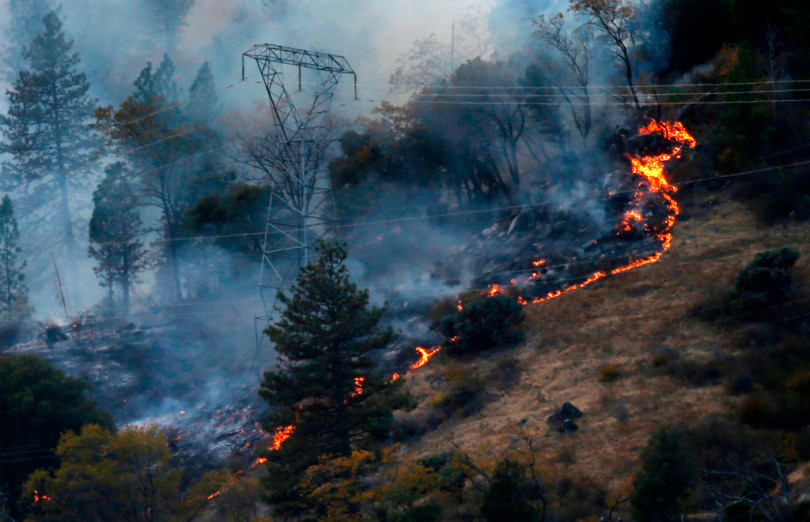By Scott M. Lindsay
Wildfires are dominating discussions among our partner utilities these days. For all the reasons you already know, wildfire preparedness and mitigation has become a top priority for electric utilities in the West.
California on the Burning Edge of Wildfire Policy
As history has shown, California is typically the first state to pursue aggressive legislation in the energy space, Wildfire Mitigation Plans (WMP) are no different.

Due to the escalation of devastating wildfires in California, the legislature passed SB 901 on September 21, 2018. This bill established requirements and unfunded mandates upon all California Consumer-Owned Utilities (COUs), to develop operational policies and practices to prevent, prepare for and respond to wildfire events. The California Public Utilities Code that resulted from the passage of SB 901 (PUC 8387) requires all COUs to establish and adopt a WMP before January 1, 2020 and renew it annually.
As we have seen in the past with other California initiatives (RPS, Solar, EV, etc.), other states are influenced and often follow suit in passing similar legislation and regulations.
WMP the New Norm
While WMP’s are not currently required in other western states, many western Governors are forming councils on wildfire response or similarly named groups to help review existing wildfire policies, evaluate their sustainability and, if lacking, recommend new ones.
Regionally, the Western Governors’ Association (WGA) has established an agreement with U.S. Department of Agriculture (USDA) to pursue collaborative projects in wildfire response, vegetation management and related mitigation activities.
In Oregon, Gov. Kate Brown’s wildfire council issued a report estimating the cost of mitigating Oregon’s growing wildfire problems at $4 billion. The November 13th report also said this was a relative bargain compared to potential costs if the state fails to act.
With on-going efforts like this, it is a matter of time before WMPs are required of all Western utilities. In the interim, it would be good to develop and implement a wildfire risk mitigation and assessment plan to minimize risk and reduce liabilities. Proactive work may be best focused on vegetation management, hardening and coordination. Moving forward, utilities should plan to incorporate wildfire mitigation strategies, system upgrades and related costs into their planning (strategic plans, long-range plans, system coordination, construction standards, budgets, etc…).
Trinity PUD Case Study
Trinity Public Utilities District (TPUD) in Weaverville, California partnered with BKI to develop its WMP. As required by the state, the plan addresses:
- Risk analysis and risk drivers
- Goals and objectives
- Operation and maintenance
- Wildfire prevention strategies and programs
- Performance metrics and monitoring
- Stakeholder involvement
- Community outreach
As a small, rural PUD, Trinity has a limited budget and resources so the measures in the WMP needed to be sensitive to infrastructure costs, upgrade capabilities, staffing demands and other important considerations. Another key area of focus was on the implications of potentially being regulated or coming under the jurisdiction of the state public utility commission. No language in the WMP stated or implied that TPUD was or would become jurisdictional by preparing their WMP. By developing the plan, the utility is acting in the interests of their members and their electric system by taking steps to mitigate the impacts of wildfires.
WMPs are E&O Intensive
WMP’s rely heavily on engineering and operations to provide much of the needed content, strategies and over-all system understanding for the plan. Since each electric utility is unique, there is no one-size-fits-all when it comes to WMPs. Each service area has individual challenges and solutions must be tailored to the utility’s needs. Regardless of what requirements that are advanced by different states, a WMP will be an ever-evolving plan and will look different with each passing year. By analyzing the metrics annually, successful programs are bolstered and ineffective programs modified. The goal being that over time, reliability and safety are increased and all utility sourced ignitions are reduced, if not eliminated.
As part of our growing suite of value-added services, BKI helps our partner utilities prevent, combat and respond to threats to their systems by preparing, updating and reviewing WMPs. Our capable WMP team of Byron Woltersdorf, PE, Larry Winther and Reyna Victoriano Candia stand ready to help. Our plans prepare utilities to be in compliance with current or upcoming regulations, while minimizing the risk of damage to and from electrical lines and equipment.


